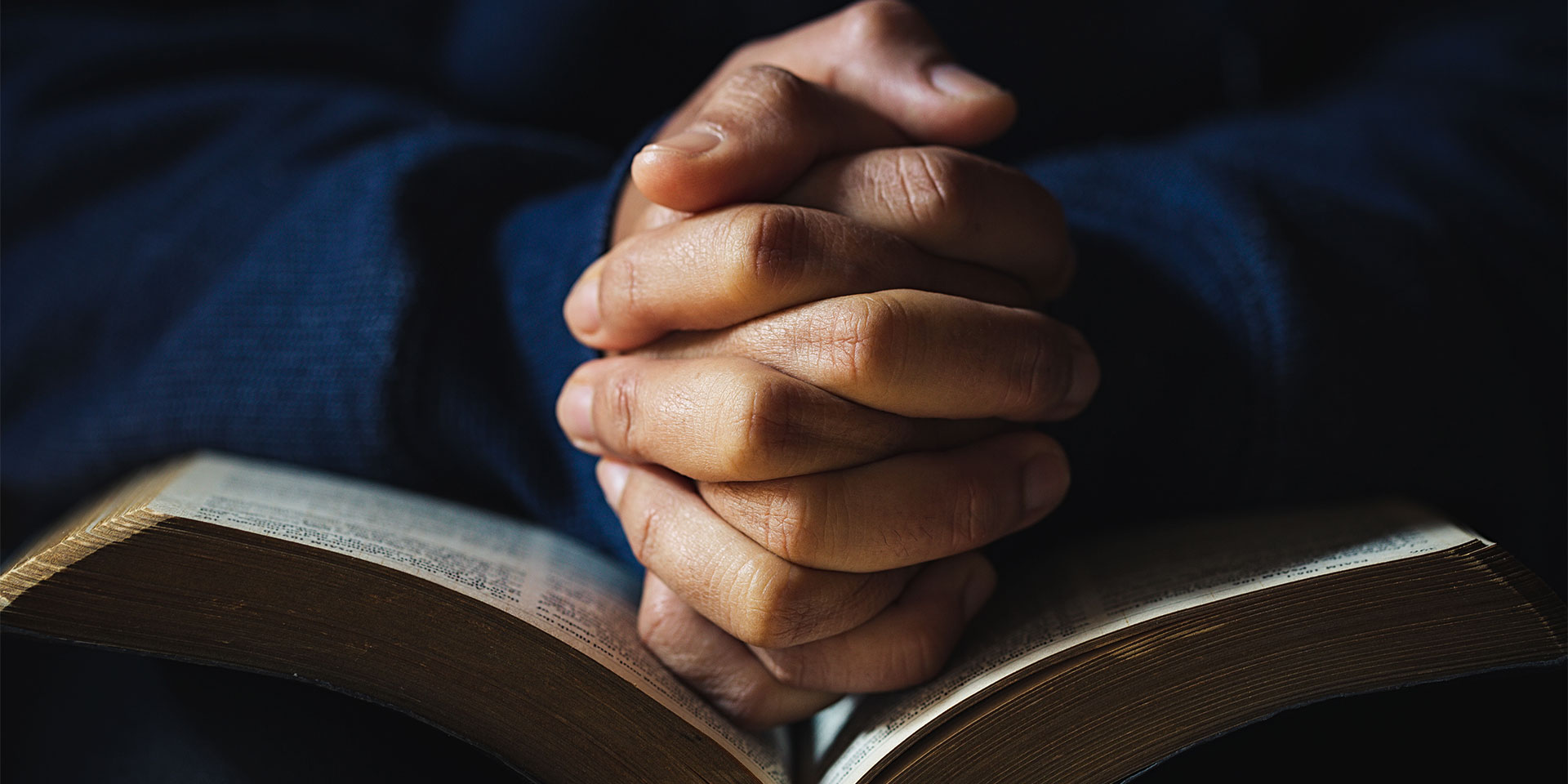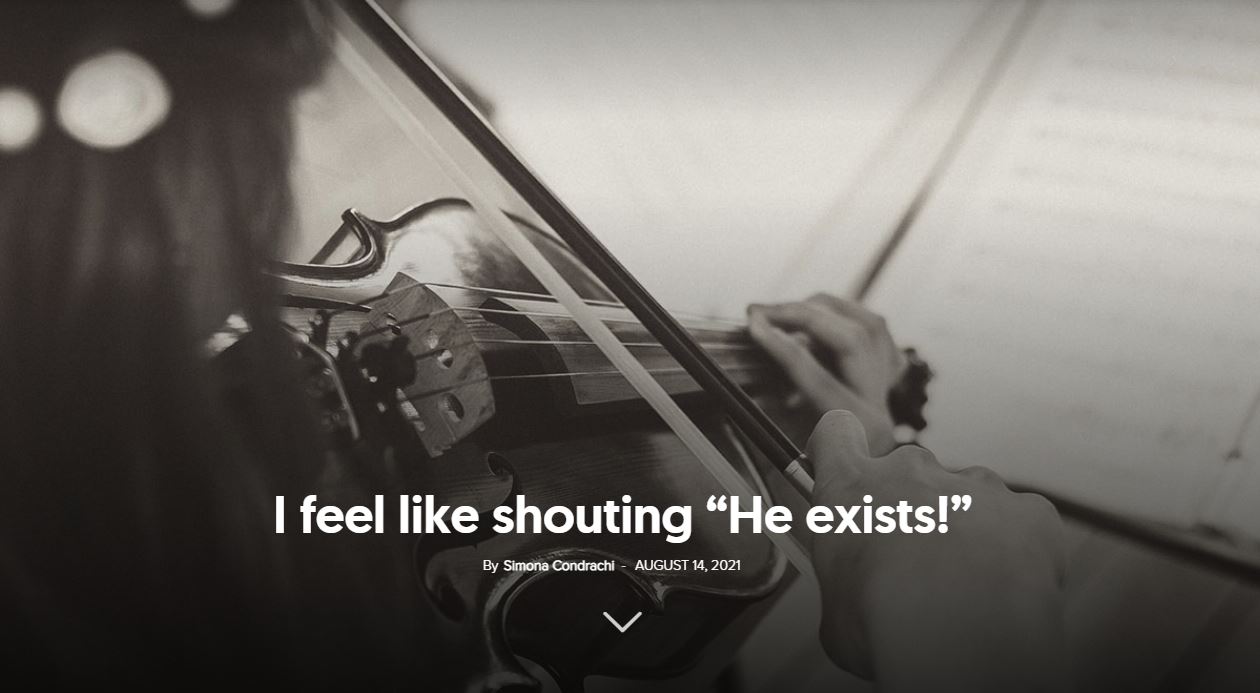I had a ringing in my ears due to that unusual inner silence which I was paradoxically experiencing at the same time as a thought-storm that made me scream on the inside.
Silence was enticing my unrest, like sleep lures in a man who is about to freeze to death. Unbelief was mingling with faith, resignation with the disappointment that no one saw me in order to help me. I was emotionally going back and forth between these states of mind, while I was rationally exploring two worlds that should have excluded each other, but which now overlapped in inexplicable ways.
The weather was cool that morning, but not cold. It was around 8 o’clock. The birds in the forest behind the professors’ houses, the dogs of the people from across the street and the people walking on the campus alleys made the day seem ordinary. I had taken a few steps from the entrance in the student canteen towards the dorms. From the opposite end a late student came running. I believe he smiled as he passed me by, as a promise of a happy day.
However, this absolutely ordinary meeting was the last one before the closing of a portal between two worlds. I went to the room feeling I no longer believed. I no longer knew for sure how I got there, in my second year of theology studies, and still, it was quite clear to me. Ideas that were perhaps conveyed in an unwise way, but especially attitudes, which to my uninitiated, scared eyes were ambiguous, ambivalent or dissimulated, had contributed to this state of mind.
I can distinctly remember how, after that, in the evening, I kneeled to pray. I felt the need to double-check whether the opacity around me was just perceived or real.
Seeing myself from the outside, I simultaneously saw a kneeling man, talking to himself, and a man that felt he could perhaps start a real dialogue with Someone, for the mere reason that that Someone might exist. I was then discovering, without any conceptualization, that God’s existence or His inexistence cannot be proven mathematically. I also discovered that the mind can formulate disturbing questions regardless of which side of faith we are on.
I also opened the Bible. I felt it was different, but I was drawn to look through it while I was exploring my new perception. I got to John 13. I read about Jesus whose burden was growing every minute, while His disciples did not manage to help Him. I felt close to that emotion. When I read that Jesus “was troubled in spirit”, I relived, for a brief moment, the sum of my unrests. I then came to the first verse of the following chapter: “Do not let your hearts be troubled.” The picture behind these words did not only suddenly reopen the portal between the two worlds, but completely overthrew the power balance in that seemingly lost battle.
A Jesus experiencing the abyss of unrest and being authentically concerned with protecting His disciples from unrest showed me that there was a perspective that I had not taken into account. I realized that the surest way to see God was to look at the world the way He does. At the same time, the surest way to miss Him is to look at the world in any other way. In Jesus’ eyes, His unrest was not a threat, in the same way that doubt regarding the Father’s existence was not a possibility.
What was threatening was the doubt that could come over His disciples, because they hadn’t gotten to know the Father enough. Lack of knowledge, thus, fuels doubt, and knowledge strengthens faith[1]. Jesus, who knew His Father, kept His way in the midst of unrest and reasons to doubt.
Faced with that revelation, my unrest was devoided of its content. Since then, I have come to know that faith is always a matter of knowledge. The more I know God, the easier it is to stay on track. The only thing that was left to do then seemed both simple and mobilizing. I wrote down a biblical promise on a bookmark and went down into the dorm’s hallway, discreetly, so I would remain unnoticed. I no longer wanted to be seen. I was no longer screaming. I was overwhelmed with another kind of silence—one associated with a clear inner purpose.
The hallway was noisy and packed with people. While I was looking at all the busyness of people whose self-absorbance no longer disappointed me, I saw a colleague from another major. She passed me by in a hurry, her crying face buried in her hands. I caught up to her and gave her the bookmark. I was sure I saw her because God Himself had seen her first. Somehow I think she understood that too. As far as I am concerned, I received proof that the world is different if you look at it as God does.
The way in which we relate to questions, disappointments and the unknown determines our answer to them. Time, perseverance, honesty and faith in God open up new perspectives. Through these new views, I continued to add new meanings to my understanding of God. I reached the conclusion that I do not need to doubt Him when I discover new questions. I do not need to question my faith, not even if those questions are favourites of skeptics and atheists. I know there are angles I haven’t yet used in order to look at the world as God does and that I will discover them more easily if I do not doubt Him.
You may also like:
Today, I know that walking forward in faith does not mean living closed up in a space where faith is easy or possible, but accepting our challenges without the instability brought on by fear and doubt[2]. It’s not like we can no longer feel “the ants in the pants of faith”[3], but they don’t frighten us anymore. We can make many mistakes about what we think we’ve understood, on both sides of the border between belief and unbelief. Time will tell how much and where we’ve been wrong. However, it’s not necessary to live in uncertainty until then.
It’s true that as long as nobody has mathematically proven God’s existence or inexistence, we cannot live with mathematical certainties, regardless of the camp we find ourselves in. We do, however, have the certainty of experience that is getting stronger as we get to know God more. As for the claim that we no longer need the hypothesis of God’s existence to explain the world, I believe that speaks either of a limited definition that we give to the world, or of certain personal uncertainties that are more disturbing than previously expected.




















